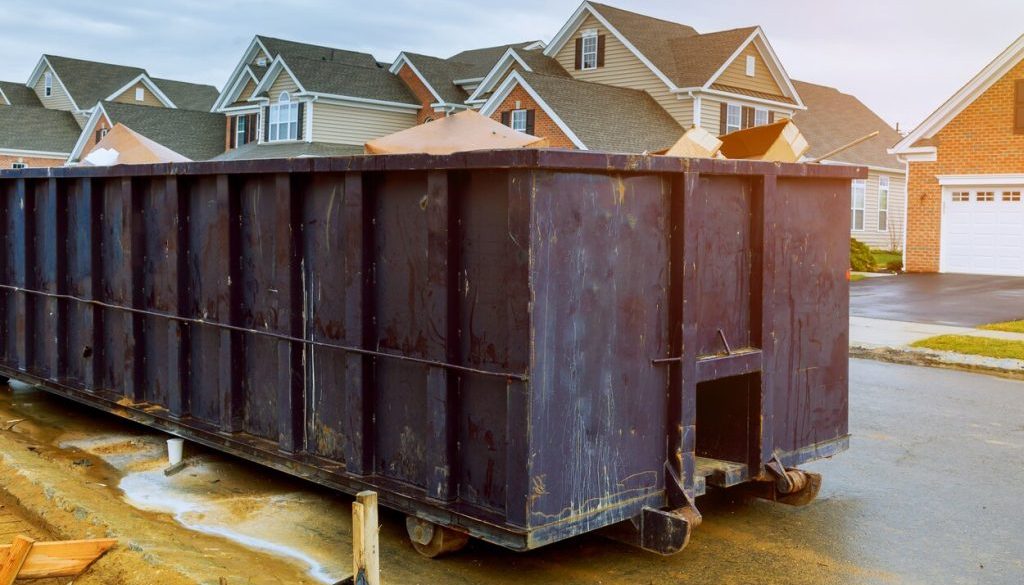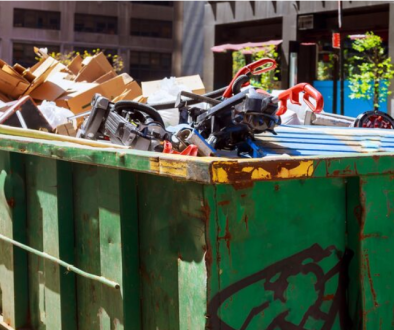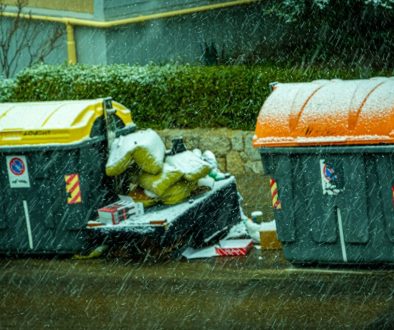While the origins of the word ‘skip’ is not something you really think about, it may be worth giving it some attention considering how important skips are. In countries like the US and Canada it’s referred to as a dumpster, which seems logical given the nature of its use. However, in the UK we call them skips. And despite how simple this may seem, there are a slew of things that need to be discussed in order to have a good understanding of the history of the word. To help you out, here’s everything that you need to know about the origins of skips.
What Is a Skip?
Before anything else, let’s take a closer look at skips. Skips are large, closed or open-topped containers that are used to collect and dispose of large amounts of waste. Skips are typically placed outside a home or business and filled with waste by the tenant or homeowner. They are then collected and emptied by a skip hire company, which disposes of the waste in an environmentally responsible manner.
Skips are the most common type of waste disposal system used in the UK, with an estimated 2-3 million skips being used annually. Skips are available in a range of sizes, from small ‘mini’ skips, to large ‘maxi’ skips. The size of skip you need will depend on the amount and type of waste you are disposing of.
Skips are ideal for bulky items such as furniture, mattresses and white goods, as well as construction and garden waste. They are also a great option for clearing out a large amount of waste quickly and easily. Skip hire companies will also provide a ‘wait and load’ service, where you can fill the skip on-site and the company will then collect it, saving you the time and effort of taking the waste to the tip yourself.
When choosing a skip hire company, make sure to compare prices and services, as well as reading reviews from other customers. It’s also important to check that the company is registered with the Environment Agency, as this guarantees that the waste will be disposed of in an environmentally responsible manner.
What Is the Origin of the Word “Skip”?
Now that we all have a good understanding of what a skip is, it’s time to explore the origins of the word. The term ‘skip’ is derived from the Old English word ‘sceap’, which means to throw away. This is likely to be due to the fact that skips are often used to discard unwanted items in a quick and easy way.
The first skips were developed in the 1940s in the United Kingdom. They were initially made out of wood, but soon after they started to be made out of metal, which made them more durable and easier to move around.
Since then, skips have become an invaluable tool in the waste management industry. Skips are an essential part of modern waste management. Whether you’re a homeowner, business owner, or contractor, skips can help you quickly and efficiently dispose of your waste.Skips are also often used in the commercial sector, such as for the collection of recyclables.
How Have Skips Developed through the Years?
Now that you know the origins of skips, let’s take a look at how they’ve evolved throughout the years. When skips first hit the market, they were nothing more than large metal containers used to store rubbish on a temporary basis. These skips were usually placed at the back of businesses or in alleys and were designed to be filled with refuse and taken away for disposal. As time went on, skips were gradually improved and adapted to meet the changing needs of consumers.
One of the earliest improvements to skips was the introduction of hooks. This allowed the skips to be easily loaded onto trucks and transported to a landfill or other disposal site. This eliminated the need for manual labor, making the process of waste disposal much more efficient.
In recent years, skips have become more versatile. Today’s skips are constructed from heavy-duty metal and are designed to withstand harsh weather conditions and intense wear and tear. This makes them suitable for a variety of applications, including construction sites and industrial sites. Some skips also offer additional features such as lids and locks to ensure that waste is securely stored.
In addition to being more durable and versatile, today’s skips also allow us to become more environmentally friendly, as skips can be used to recycle materials that are designed to reduce the environmental impact of waste disposal. This includes materials such as recycled plastics and cardboard, which can be recycled after use.
Overall, the development of skips has been a boon for waste management. They have become an essential part of the process, providing a convenient and efficient way to dispose of waste. As the need for waste management continues to increase, skips are likely to become even more advanced and efficient.
Conclusion
We hope this article has helped you gain a better understanding of skips and the origins of this valuable tool. Skips are an indispensable part of our modern lives, and their origin can be traced back to the industrial revolution. The invention of the skip was a result of the need to manage the growing amount of waste in our cities and towns. Since then, skips have become a vital part of our waste management system and are now used in many countries around the world. With the help of skips, we can make sure that our waste is disposed of in a safe and responsible manner.
If you’re in need of a skip in Chester for waste disposal, Enviro Skip Hire has got you covered. Enviro Skip Hire is a family run skip hire and aggregate company servicing Staffordshire. All waste collected by Enviro Skip Hire Ltd is first taken to one of our two fully licensed recycling facilities to be sorted into recyclables and non-recyclables. Take a look at our large selection of skip sizes and give us a call today!




